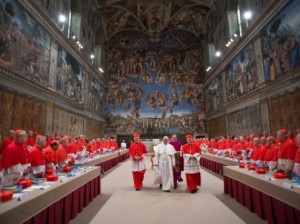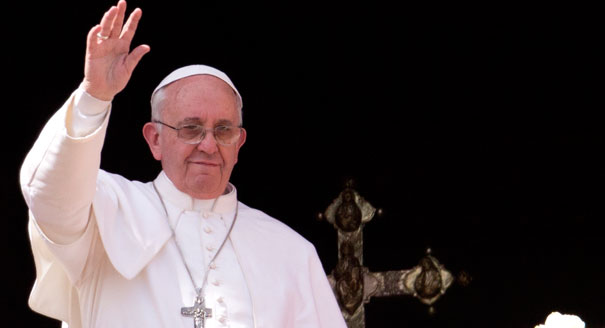When Pope Benedict gave his final address on February 27, the world was watching, both him and the Catholic Church, to see who would be the next leader. The international impact on Benedict’s resignation was undisputable: he was the first in nearly 600 years to resign rather than pass away in office, perhaps setting a precedent for a new era of Popes. However, the question of the resignation’s impact was not a crucial as that of who would fill Benedict’s shoes.
That question was answered when white smoke flew from the Vatican’s election chimney on March 13, 2013. The Cardinals, in a seemingly revolutionary break from tradition, not unlike Benedict’s resignation, chose a man born in Argentina. The first non-European to be elected to the position in nearly 1,300 years, and the first ever of the Jesuit order, Jorge Mario Bergoglio took the name Francis, the first pope to choose that name.
The name commemorates Saint Francis of Assisi, the patron saint of animals and the environment, who began the Franciscan ministry in the 1200s. Franciscans have been globally recognized for their devotion to the poor, and their willingness to relinquish worldly goods. By taking this name, Pope Francis reaffirmed his devotion to helping those hard in spirit, especially the less fortunate, and redirected the church from defensive social strategizing to wholehearted giving.
Reactions to the selection of Bergoglio as pope have been mixed. Many liberal Catholics welcomed him, hoping he would redirect the church and possibly shift away from the status quo on social issues such as birth control and same-sex marriage. It appears, however, Pope Francis does not wish to deviate at all from the conservative, Roman Catholic teachings. On April 15, the Pope had a run-in (or better said, a nun-in) with members of the Leadership Conference of Women Religious, a group that comprises primarily sisters of the church. Many of these women were promoting “radical feminism,” and challenging the churches view on many social issues, from abortion to marriage. In response to this meeting, the Pope set up re-education programs to reign the nuns back in, and dispatched an archbishop to rewrite the group’s statuses.
Already, Pope Francis is signaling that he is not the revolutionary many had hoped for following Benedict’s dramatic turnover. Though not a progressive, this new Pope’s emphasis on servitude and the less fortunate are a positive shift that will serve the church, and the world, well for years to come.







